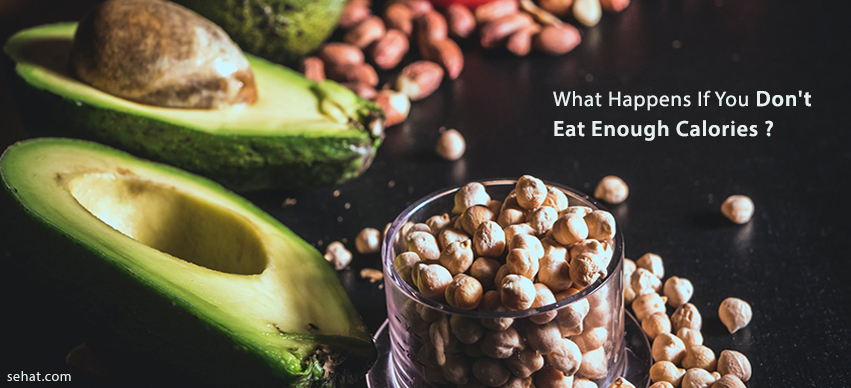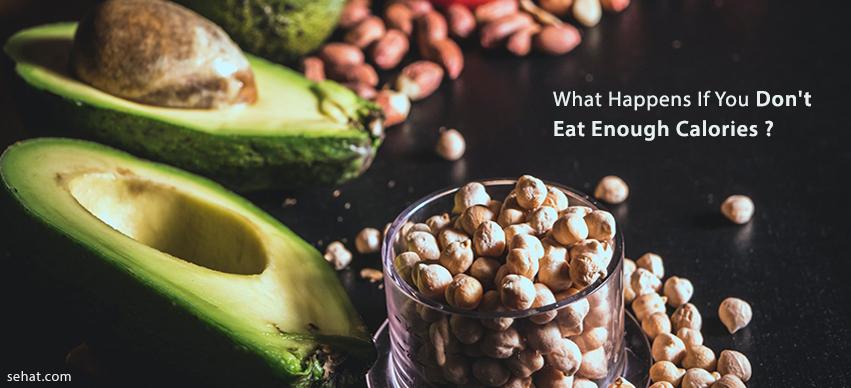What is Tempeh? Nutrition, Health Benefits, How to eat
4 Min Read


Energy is important for survival. Energy is an essential requirement for all physiological processes, whether vital or non-vital. If a person does not have to eat enough calories, there would be an impact on his health, manifestoed though a variety of symptoms.
Eat well to live well. Essential nutrients are required for your whole body. Along with these essential nutrients, calories are also required that provide energy to the vital tissues including brain, heart, and lungs. The effect of not getting enough calories varies with time. A smaller period with low calories may cause no or very mild symptoms which can be reversed through intake of sufficient calories. When you don’t eat enough calorie for an extended period of time may lead to complications which may sometimes be non-reversible. The effect of not eating enough calories include
The body requires a minimum amount of energy for properly performing physiological functions. Energy is required in body processes as simple as breathing. If you do have enough calories, the body would not get required energy resulting in chronic and frequent fatigue.
The immune system is regulated by various essential ingredients. If the body is not receiving calories, it indicates an imbalanced diet. This may cause a deficiency of essential minerals. The person with low calories would be more vulnerable to infections.
In case of limited calories, the body has to prioritize vital processes for its survival. In such conditions, the body gives more focus to breathing and circulation while little energy is channelized to other systems including the reproductive system. There would be a low level of hormones and both male and female have fertility problems.
Various skin problems are experienced by people who have low-calorie intake. Skin infection, inflammation, and skin dryness may occur. Further, the skin may get easily damaged due to sun exposure.
Growth is through cellular division. Cellular division requires energy. Energy deficit at a younger age would affect the overall growth, including both physical and mental growth.
Growth of hair requires both energy and nutrients. If a person is under-eating, the body does not get enough energy leading to hair loss. It is important to note that in case of the energy crunch, the energy is supplied to vital organs.
Bowel movement is directly proportional to the amount of food and fiber content. Low calorie generally implies less intake of food. This results in harder stools which requires force to expel.
Temperature is controlled by the conversion of energy to heat energy. When the person has a low level of energy, the temperature of the body would not be appropriately managed and then there is a constant sensation of being cold.
Low level of calorie may cause irritability and mood swings. The person with low-calorie intake feels lethargic and depressed. The person also has a low level of patience. This is due to the increased release of adrenaline by the brain in response to reduced energy. Even if the patient does not eat enough calories, the patient may not feel hungry due to behavioral changes.
In some cases, a low level of calorie intake may cause menstrual disorders. This may be due to reduced energy supply for the synthesis of reproductive hormones which regulates the menstrual cycle.
You are on fasting while you sleep. The body has to use energy from its reserves during sleeping. In case of low calorie, the body is not able to fulfill energy requirement while sleeping causing insomnia.
Low-calorie level means the body is not getting sufficient amount of carbohydrates. This results in hypoglycemia. This increases the urge for eating sugary food. If the person eats food rich in carbohydrate, the sugar level suddenly shoots up. Thus, low calorie results in altering sugar levels.
Calories are the fundamental unit of energy used by the body in performing various activities. The body has the ability to channelize the energy to various processes making optimum utilization. Every person has calorie requirements such as calorie requirement is different for infant, children, women, men, pregnant women and elderly. People who are interested in losing their weight critically analyze the amount of calorie they eat. Further, the calorie requirement also varies according to the lifestyle which can be sedentary, moderately active and active. On average, the adult female requires almost 1600 calories to 2400 calories per day while the requirement of an adult male is 2000 to 3000 calories per day. Following are some of the foods that are rich in calories
Avocado contains high calories and fibers. One avocado contains 320 calories and approximately 14 grams of fiber.
Apart from high-calorie level, it also contains proteins and fibers. 1 cup of quinoa contains 220 calories and 4-5 grams of fiber.
Olive oil is Known for imparting health benefits to the body, one tablespoon of olive oil contains 115 calories.
Nuts provide a high quantity of calories, protein, and fats. Different nuts have different calories. For example, 100 gm of Macadamia Nuts provides 718 calories.
100 gm of mashed sweet potatoes provides 105 calories.
Legumes are packed with a sufficient amount of energy along with fibers. 170 grams of cooked legumes provides 227 calories.
Other foods containing high calories are rice, coconut oil, smoothies, dried fruit, fish, dairy products, and meat.